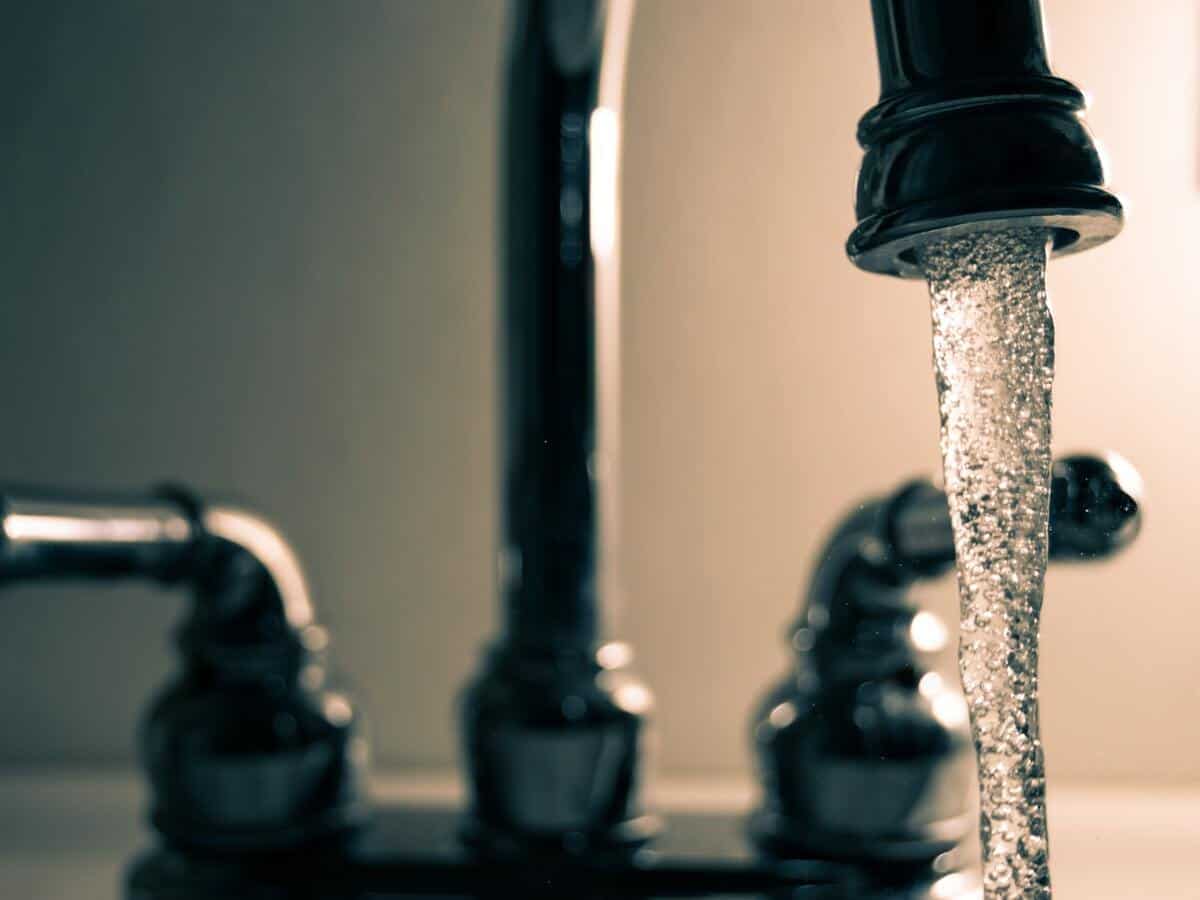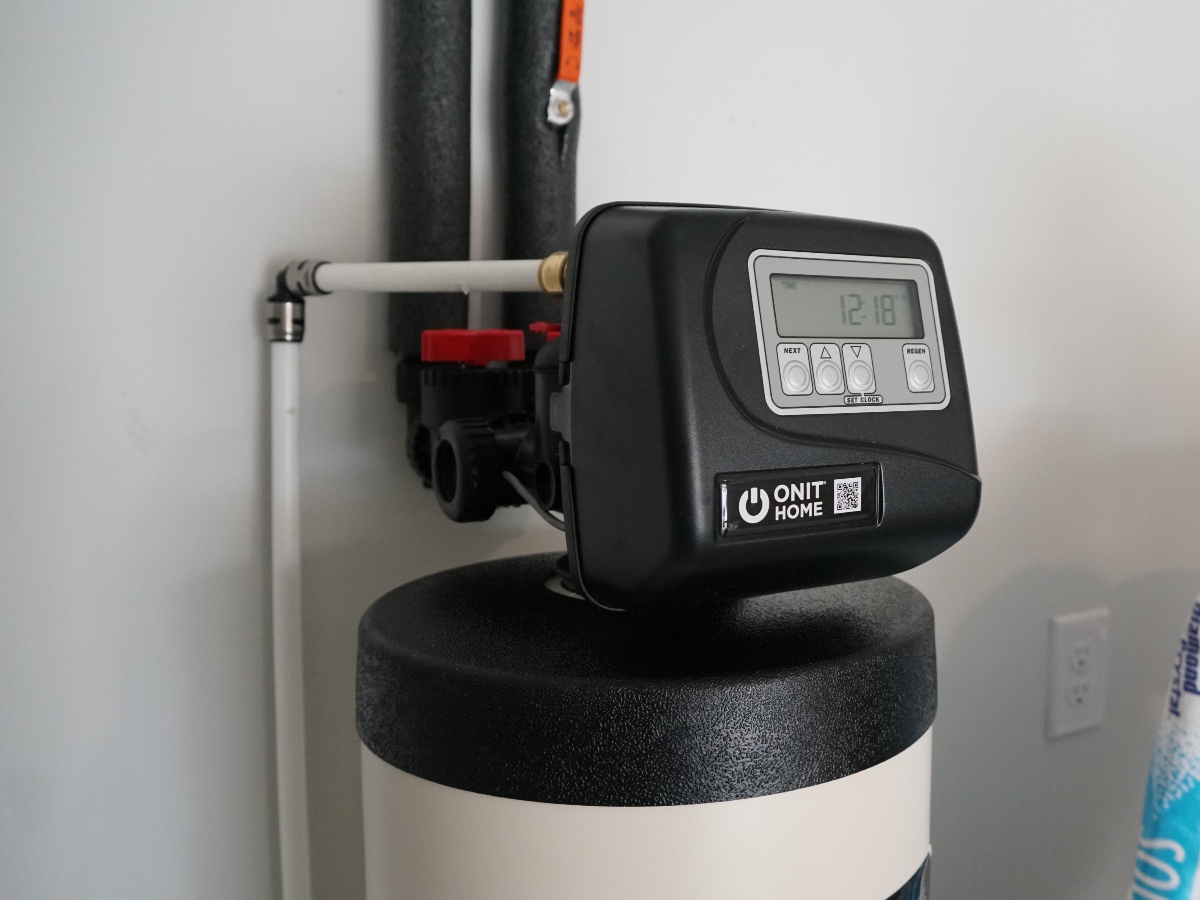Refrigerator water filters are a great way to get clean, filtered water without buying bottled water. But one question most people ask is, “Do refrigerator water filters remove fluoride from tap water?
Let’s look closely at fluoride in water, what effects there are if you consume water with excess fluoride and if refrigerator water filters remove fluoride.
Understanding the Refrigerator Water Filtration Technology
Most fridge filters use carbon-activated filtration technology. Activated carbon filtration works by adsorbing impurities onto the surface of porous carbon. The carbon block inside the filter attracts contaminants to its surface while letting water pass through.
The effectiveness of the carbon filter will depend on the pore size (micron rating). Most refrigerator water filters have a 20-micron rating which means they can reduce a tiny fraction of fluoride and other contaminants.
Do Refrigerator Water Filters Remove Fluoride?
No. Refrigerator filters cannot remove fluoride from tap water simply because they use activated carbon filtration technology. However, they can remove chlorine, taste, and odor. Furthermore, refrigerator filters are certified by the ANSI/NSF 42 standard, which certifies that they effectively reduce contaminants related to chlorine, taste, and order. The best filters to remove chlorine should have ANSI/NSF 53 and ANSI/NSF 58.
The ANSI/NSF 53 certified water treatment systems that can reduce contaminants that can lead to health problems, while the NSF/ANSI 58 reverse osmosis systems.
What is Fluoride?
Fluoride ion is a natural mineral and has many benefits for dental health. It is added to drinking water in most countries, including the United States, to help prevent tooth decay. However, research shows that too much fluoride can harm human health, specifically children.
Water fluoridation, which refers to adding fluoride into the water to reach the recommended levels, dates back to the 1940s. This was after research showed that fluoride should be added to drinking water to prevent dental cavities. Of course, there are higher chances that these studies did not consider fluoridated products such as toothpaste and mouthwash back then. While water fluoridation reduces dental cavities, countries that do not add fluoride to their water have also registered the same results.

How Does Fluoride End up in My Tap Water?
Fluoride occurs naturally in the soil and rocks. It gets into the water sources such as rivers, reservoirs, and groundwater through runoffs, while others leech through the soil. In addition, fluoride is added to water at treatment plants. The amount of fluoride added varies depending on the level of fluoride present in the water supply. After water fluoridation, the water supply is distributed to homes and businesses through the water system. Some parts have high fluoride levels in the water, while others have low levels.
What Are the Current Fluoride Levels in Drinking Water?
The accepted level of fluoride in drinking water is currently 0.7 mg/L (milligrams per liter). The U.S. Department of Health and Human Services (DHHS) set this level in 2015. From 1962 to 2015, the fluoride levels were 0.7 to 1.2 ppm. The current level protects against tooth decay and promotes general oral health. In addition, these levels are safe for both children and adults.
However, some areas of the country have fluoride drinking water levels over 0.7 mg/L. This can happen naturally, or it can result from industrial pollution. You should monitor these cases closely to ensure it stays within the safe range. The World Health Organization (WHO) sets the maximum fluoride levels in drinking water at 1.5 ppm.
Why Has Fluoride Exposure Increased?
Initially, the only fluoride source in water was from the soil, bedrock, volcanic activity, and anthropogenic reasons. Today, fluoride exposure has increased over the years. Besides being added to many public water supplies, it’s also present in fluoride-containing products such as toothpaste and mouthwash.

What Are the Health Effects of Excess Levels of Fluoride?
According to the American Dental Association (ADA), dental-related illnesses cost Americans around 164 million work hours and 51 million school hours annually. Fluoride can help reduce these numbers. However, excess levels can lead to adverse health effects.
Here are some health effects that excess fluoride in drinking water can cause:
- Dental fluorosis- yellow or brownish-yellow spots.
- Skeletal fluorosis
- Fatigue
- Muscular damage
- Bone damage
- Arthritis
- Osteoporosis
- Altering the tissue’s structure
- Weakening the skeleton.
In extreme cases, it can damage the following:
- Heart
- Arteries
- Liver
- Kidney
- Neuron system
- Endocrine glands
What Can I Do to Limit My Fluoride Exposure?
There are several ways you can reduce fluoride exposure:
Use of Water Filters
There are very few types of filters that can remove fluoride from tap water. Here are some options:
1. Reverse Osmosis Filters
Reverse osmosis (RO) is among the most effective filter technologies that remove fluoride from your water. The RO systems force water through a semipermeable membrane. The pores on the membrane are tiny enough to allow water molecules through, but they’re too small for larger molecules, like minerals and other contaminants. As the water molecules are forced through the membrane, they leave behind the impurities, which are then flushed away. This water filtration removes various pollutants, including bacteria, viruses, and lead.
Reverse osmosis systems are expensive and have a lot of wastewater; however, they’re among the best filters on the market. Therefore, it offers value for your money.
2. Deionizers
A water deionizer system removes ions from water. This is done by passing water through a bed of resin, thus attracting and binding to the ions in the water. The result is water that is free of ions and impurities.
Activated Alumina
Activated alumina (AA) filters effectively remove fluoride, chloride, and other contaminants from water. The filter is made from a type of aluminum oxide that has been treated to make it highly effective. Activated alumina filters effectively remove fluoride from water and other contaminants such as chlorine, bromine, and arsenic.
3. Bone Char
A bone char filter is a water filter that uses bone char to remove impurities from water, including fluoride. Bone char comes from the charring bones of animals. This filter is known for its ability to adsorb organic matter, metals, and other contaminants from water. The filters can remove 90% of fluoride from your water. However, it is crucial to note that not all refrigerator water filters are certified to remove fluoride. When buying, check the specifications of your filter to see if it is certified to remove fluoride.
Distillation Systems
Old is gold. Distillation is one of the oldest methods of purifying water, and it has repeatedly proven to be effective at removing most contaminants. Water distillation is purifying water by evaporating it and then condensing the vapor. This process can remove impurities from the water, including fluoride and nitrates, making it safe to drink. Other ways that you can reduce fluoride exposure are:
- Avoid swallowing toothpaste, especially for young children
- Do not overheat Teflon pans while cooking or use non-Teflon cookware
- Avoid fluoride supplements
- Do not use fluoridated salt
- Avoid fluoride gel treatments unless it’s in case of the highest risk of cavities
- Limit your consumption of mechanically deboned chicken

Invest in a Whole Home Filtration System
Many water filters available today are not effective at removing most water contaminants. For example, a fridge filter or any other filter that uses active carbon does not remove fluoride from your water. So if you have fluoride problems in your drinking water and have a fridge filter, you’re putting your family at high health risk. Test your water if you think it may contain fluoride from a public or private well. Water testing can help you understand your home’s water quality to prevent your family from consuming contaminants that can lead to health risks.
Have a professional perform the water test because they have more experience and can more quickly identify the problem’s source. Additionally, they can advise on the best water filtration system to match your home’s water needs. Instead of using a fridge filter that can only remove chlorine, taste, and odor, you can invest in a whole home filtration system. One of the main advantages of whole home water filtration systems is that all your taps, including showers, will have clean water. Therefore, you don’t have to invest in more than one filter for your whole home to have clean and tasty water. In addition, this filter eliminates 99% of contaminants.
The Answer
Refrigerator filters do not remove fluoride from your water. These filters can only remove chlorine, taste, and odors. In fact, you cannot rely on a refrigerator filter to remove most contaminants from your drinking. So, if you’re concerned about fluoride in your water, installing a reverse osmosis filter is the best way to remove it. You can also use activated alumina or bone char filters.
Enjoy Safe Drinking Water with ONIT Home
Do refrigerator water filters remove fluoride from tap water? No, fridge filters do not remove fluoride from your water. There are many contaminants that these filters cannot remove effectively. If you’re looking for the best filters to remove fluoride and other contaminants, ONIT Home’s whole home filtration system can do this and more. Our systems remove fluoride from your water and other contaminants such as chemicals, bacteria, heavy metals, viruses, and debris. We can help you test your water and give same-day results. Our experts will also interpret the results for you and offer a customized action plan that meets the needs of your home.
For any information, visit our website today or contact us at 1-833-433-0331 to interact with our dedicated experts for all your clean water needs. We’re ONIT!



